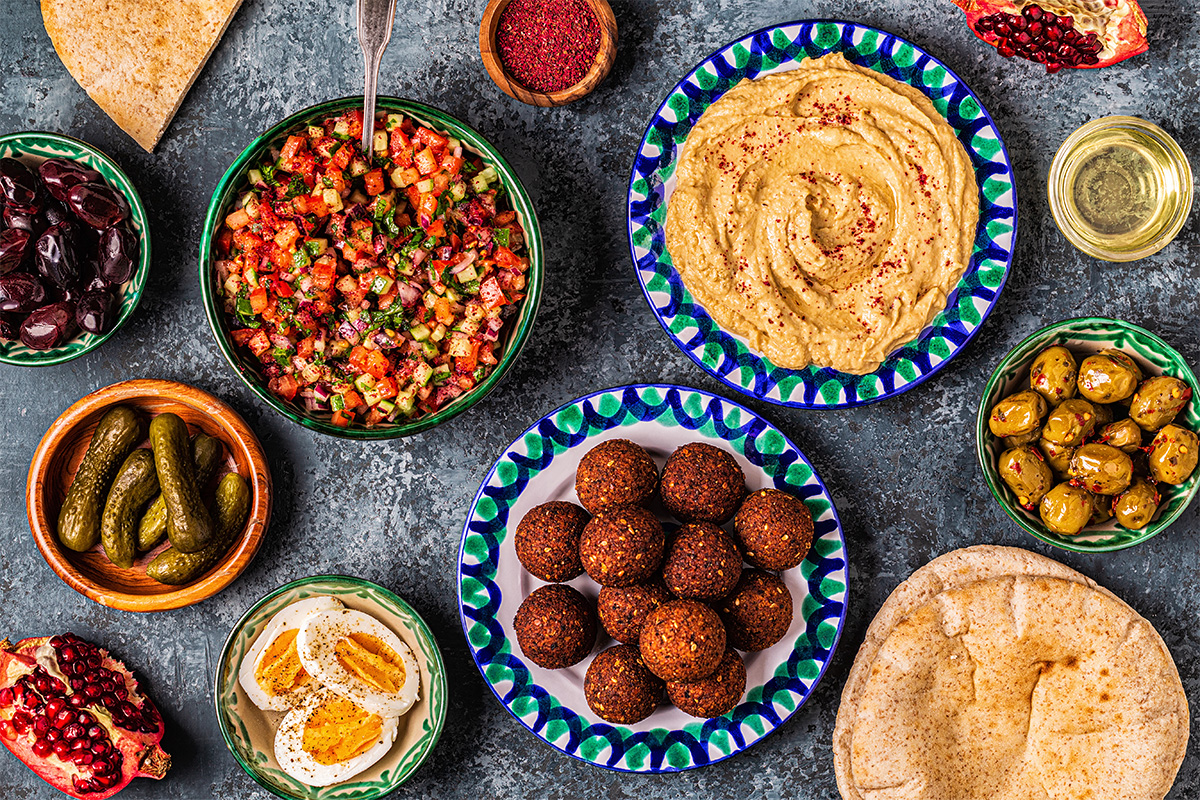Sesame seeds: a Jew’s best friend, A Middle Easterner’s best friend, basically a Middle Eastern Jew’s blood type. And, for this Middle Eastern Jew, completely toxic.
When I was diagnosed with a severe allergy to sesame seeds among other foods at only 6 months old, my — and my parent’s — new world was rocked.
My tests came out positive for dairy, nut and egg allergies, but sesame seeds? My life was bound to be full of them. In my Israeli immigrant household, no table could be set without my dad’s tahini. In my Jewish day school, everything bagels equated to lunchtime joy. My grandparents and little cousins back in Israel would come in for a hug, wiping leftover sesame seeds from their bourekas off their faces. My heritage and community went hand in hand with sesame.
As a young girl who was already growing up in America lost between cultures and worlds, I found that not being able to access the one food that connected all of my cultures — Israeli, Mizrahi, American and Jewish — took a toll on me. I automatically felt left out and uncomfortable on major occasions and events that centered around the deep Jewish love of food. I so desperately wanted to be like everyone else, and my allergy was not helping my case.
In my yearly trips to Israel to visit my family, I felt like I was surrounded by everything I couldn’t go near. They say Israel is the land of milk and honey, but I beg to differ: It is the land of sesame, or sumsum. While my family ate falafel, shwarma and sabich, and wiped delicious pitas into freshly made bowls of mouthwatering hummus, I sat outside with my mom and a bottle of Israeli grape juice, just wishing I could be there with them. (Shout out to Prigat grape juice, the artificial taste of my childhood!) I felt as if I wasn’t Israeli enough, literally sitting on the outside, just waiting to feel at home.
In America, when all my friends had spreads of sesame bagels at their bar and bat mitzvahs, I found myself wanting to be anywhere but in synagogue lobbies and dining halls. Anaphylactic shock at a bat mitzvah service was not exactly the vibe I was going for in middle school. While everyone around me felt at ease generously hugging everyone within sight, I was the odd one out having to ask them to wash their hands. Imagine early pandemic germaphobia: that’s me at a bat mitzvah luncheon.
Judaism is deeply entrenched in values of friendship, embracing and food. As much as I loved to eat the foods that I still could, I often wished the first two values were not as entwined with the latter.
But there is a flip side. Being allergic to such a core factor of celebration and daily life in my culture has led me to find creative ways to connect with Judaism and Israeli culture. I’ve embraced cooking diverse recipes where sesame seeds are nowhere to be found, and have come to the conclusion that cheese and onion bagels are supreme (obviously, I’ve never had an everything or sesame bagel, but nevertheless, I am prepared to die on that hill).
I am still 100% Jewish and Israeli even though my blood contains zero sesame. I’ve learned that my culture runs deeper than the experiences that have been lost to my allergies. I won’t lie and say I don’t yearn for a future in which I join in on the trip to the local falafel stand in Israel or don’t fear hives when my friends mention their lunch plans, but I think I am finally at a place in which I am confident in my own identity. Though my childhood was filled with moments where I felt othered for something I couldn’t control, I get to decide how I can still be connected to my community’s food, tradition and culture.
When I was denied admission to one of the most Jewish culinary aspects, my connection to my culture only got stronger. So if you catch me at Shabbat dinner, a bris or a bat mitzvah, I’m the girl with the special baked challah free of eggs and sesame seeds. L’chaim!



